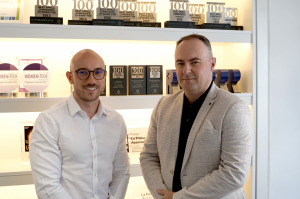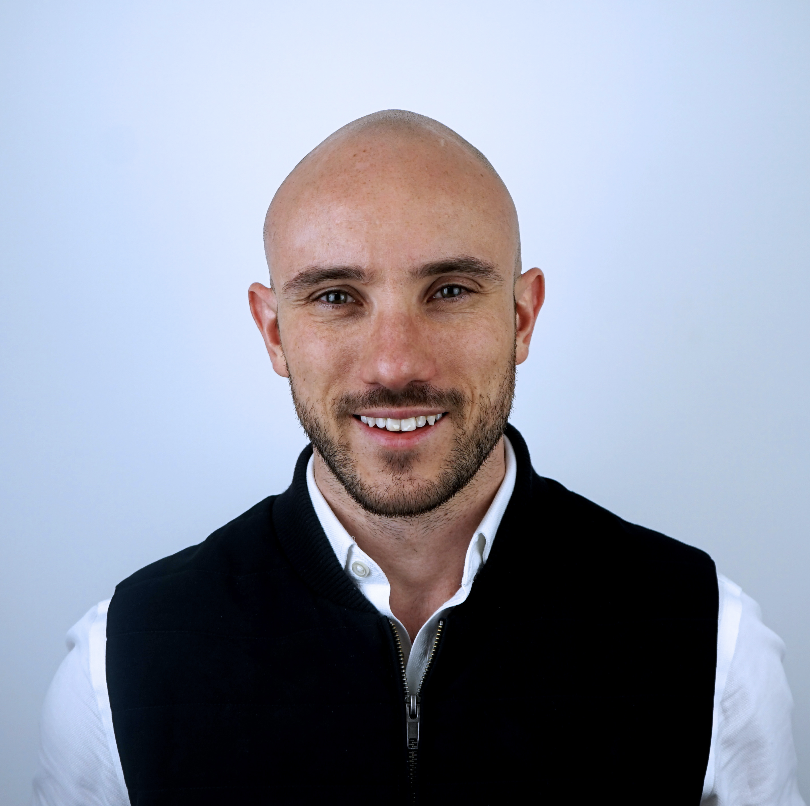Robert Miller placed into Wellbeing Software as CEO by La Fosse Executive
2 August 2022
Mark McConnell is CEO of private-equity backed Australian enterprise software and technology company Citadel Group. In 2020, the Group acquired Wellbeing Software to further establish a footprint in the UK health market. Identifying the need for a UK-based CEO capable of securing public health tenders and international expansion, Mark turned to the team at La Fosse.
Tom Granger, Head of CEO Practice, sat down with Mark and asked him about the successful placement of Robert Miller at Wellbeing Software, and what his views are on all things HealthTech.

Tell us a bit more about yourself and the Citadel story so far
I co-founded Citadel Group 23 years ago. My background is in military operations, so we began by producing systems and data work in defence, before moving to health over the last 15 years. We now run large, complex projects for whole-of-government departments and whole-of-country contracts, specialising in information management systems within pathology, oncology, radiology and maternity, taking a leading market share in these markets in both Australia and the UK.
What is your mission as a business?
We are currently going through a global rebranding process, enabling a new brand to sits across all our health divisions. This will not only provide unity and an improved employee value proposition, but a focal point, and a full reflection of our mantra to ‘improve patient outcomes’.
What are the current strategic focus points for the organisation?
We will maintain the focus on our four key ‘ologies’, and as we’ve gained substantial market share in the UK over the last year, we will also be looking at more cross-sell opportunities and how we can drive the ARPUs (Average Revenue Per User), to allow us to do more with our current clients. Our medium-term strategy is focussed on US entry, so we are looking at approaches that include channel partnerships and acquisitions.
What can you tell us about Wellbeing Software and your rationale for the acquisition?
Wellbeing (WB) had built up a very solid market share, and we were attracted to the synergies it offered and the lack of over-lap with Citadel Health. While WB was dominant in radiology and maternity, we were dominant in pathology and oncology, so there were lots of cross-selling opportunities. Although we did not foresee it, we have also discovered an opening to sell UK radiology and maternity IP back to Australia.
What have been the key milestones for Wellbeing Software over the last 2 years?
Significant changes within the NHS have proved a real milestone. There’s been a regulatory squeeze in terms of GDPR, privacy and right to be unknown, all of which need to be levied on a digital infrastructure. The NHS had to digitise records and data on all levels, and with no common procurement strategy, they didn’t have the degree of sophistication needed on an individual hospital level, prompting them to reach out to the market.
What is coming up next for Citadel and WB? What are you most excited about?
We envisage the greater convergence of clinical diagnostic pathways, for example, the patient journey with pathology and radiology, where there’s similarities in workflows. Historically, these were tendered for separately but we expect to see more tenders come to market requiring capabilities in at least two ‘ologies’. In addition, there will be the ongoing presence of EHRs who currently have a 50:50 share in the market, along with platforms like ours. For us, there’s great value in continuing to work with NHS not just as a service provider, but also on a partnership level.
What was the initial need and scope for the CEO hire?
It’s been logistically challenging to run a UK operation from Australia, with the impact of COVID, too. We’ve ‘double shifted’ for the last few years with a lot of exhausted executives! We were aware we needed senior execs, but also knew there was an opportunity cost of not having the right skills on the ground at a time when the market was consolidating.
How has Robert settled? What has his impact been so far?
We’ve found that the more we meet up with Robert and our Global EGM of Health, the more we realise how close-knit the market is. Both have worked these markets for 30 years+ so know the same people, clients and products – the synergies are significant. The new role is a culmination of a life’s work for Robert, bringing all his skills and experience together at the best time in health tech. Culturally, Robert is a great fit for us and his passion for the role is evident.
What has the Wellbeing CEO placement meant for Citadel as a whole?
It’s held a mirror up to the opportunities available in the NHS and other markets, prompting us to look to other parts of the US and the Commonwealth. We know that we can stand alongside some of the largest firms in the world.
What was your experience like with La Fosse Executive? How was the hiring process for you?
It was enjoyable working with Tom at La Fosse, thanks to the open and transparent level of communication from the outset. Throughout the process, we were happy with how we were prioritised, and impressed with the shortlist quality. La Fosse’s position as a trusted intermediary by senior talent was very reassuring. I think the best compliment you can give is repurchase intent. I know Robert felt well-treated throughout, so as he looks for his own senior hires, I’m sure he’ll be returning!
What key trends do you see emerging across the healthcare space? How is the Group positioned to capitalise on these?
AI will play a significant role in health going forward. An ageing population means there’s a lot more people needing care than those delivering it. This warrants the need for a system that provides more repeatable, commoditised components within the supply chain. We run the largest AI marketplace in the NHS, however, I think the system is still working out the commercialisation aspects of AI, so we are happy to sit on a margin of the marketplace for now. We are also looking at more diverse collaborations between NHS, big pharma, and industry, and we are driving some of that too. Also, we are involved in a number of Genomics projects, which I believe will play an increasingly important role in the health system.
Given your success with M&A and the role of good quality bolt-ons in Citadel’s growth story, what advice do you have for CEOs undergoing their first acquisition?
Hire for culture first because you need values alignment. We’ve had a good M&A success rate because our focus is on people. We’ve had opportunities to make acquisitions bigger than the parent company, but I’ve been mindful of the risk that the company may bend to the culture established at the larger organisation. We spend a lot of time in the integration phase and throughout to ensure the culture fit is right above all else.
How do you pass the time when you’re not focused on all things HealthTech?
I also run a family office in Australia where we actively invest in global high-tech opportunities – it helps keep me fresh investing in businesses with young people and ensures I keep up with the trends! We also do a lot in medical research and charities, with my own children getting involved as well. Sport is a big part of my life too, especially cricket and being an ambassador for various women’s cricket organisations, and involved in BBL and IPL – so all that keeps me busy away from HealthTech!
If you’re looking to expand your leadership team or find out more about our capabilities, please get in touch with the team at La Fosse Executive. Our team has an extensive track record across PE-backed and high-growth businesses and a deep network of leaders, enabling us to find exactly the right person to drive your business forward.
For more information:

Tom Granger
Head of CEO and Advisory Practice